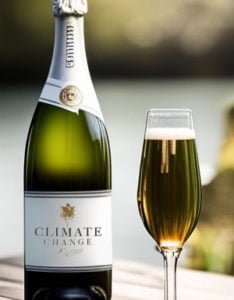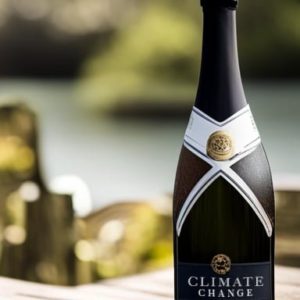
While it is still the case that typing “net zero sparkling wine” into a search engine will return results that focus on minimal alcohol content rather than carbon footprint, the sustainability trend is catching on. And even though “toast” is something we look for in our sparkling wines, it’s not something we want for our planet. So why is sustainability so important to the future of British wine, and wine marketing, and what does it mean for you?
“There is a drive among British vineyards and wineries to begin (and continue) to incorporate more sustainable practices, from farming to production, to bottling and distribution”
 It’s safe to say that sustainability is catching on, not just in the wine industry, but everywhere, and methods for organic farming, waste and emission reduction, and supporting local are not just responsible shifts – they are trendy ones. Research suggests that climate change has had significant effects on the wine industry and growing practices, including increased disease and damage and decreased production. In the Champagne region, there has been a 26% decrease in yields due to a combination of “climate hazards, ageing vines, and increased overall temperature.” Climate change is not only a problem for growing wine but also for selling it. Indeed, as a recent podcast by the global analytics firm Nielsen reports, up to 73% of consumers have considered changing their buying habits because of climate change.
It’s safe to say that sustainability is catching on, not just in the wine industry, but everywhere, and methods for organic farming, waste and emission reduction, and supporting local are not just responsible shifts – they are trendy ones. Research suggests that climate change has had significant effects on the wine industry and growing practices, including increased disease and damage and decreased production. In the Champagne region, there has been a 26% decrease in yields due to a combination of “climate hazards, ageing vines, and increased overall temperature.” Climate change is not only a problem for growing wine but also for selling it. Indeed, as a recent podcast by the global analytics firm Nielsen reports, up to 73% of consumers have considered changing their buying habits because of climate change.
Thankfully, there are many leading the way – and in turn making sustainable wines easier to sell. In material terms alone, the wide use of cork rather than screw caps in a region producing primarily sparkling wine makes packaging more biodegradable. But efforts are ramping up on a much larger scale as well. In Champagne, some of the major houses are now incorporating sustainability into their corporate strategies, including Moet and Chandon, Tattinger, and Telmont, among others, not only using organic pesticides and more eco-friendly tilling in the vineyards, but also voluntarily amassing their “green credentials” and making this known to consumers. On the UK side, we seem to be the odd beneficiaries of a warming planet – at least for wine…and for now. UK terroir, just as it is uniquely equipped for growing grapes for sparkling wine, is also somewhat untouched by the worst of climate consequences. Vineyards will always be risky and precarious business. Still, longer and cooler growing conditions in Britain allow for a more steady ripening of grapes and a greater ability to avoid interventions that may be damaging, both to the pinot and to the planet. In England we are experiencing something similar to what French climate was like a few decades ago, when the effects of climate change and rising temperatures were not as severe. You could say that the UK sparkling industry has profited from climate change, but such benefits also present rich responsibilities – to be proactive, pioneering, and ambitious in our sustainability goals.
So who is “getting it right” in the English market? There is a drive among British vineyards and wineries to begin (and continue) to incorporate more sustainable practices, from farming to production, to bottling and distribution, which include (but are not limited to):
We see several English wineries doing fantastic work in this space, including Balfour Winery, Albury Estate, Gusborne, Henners Vineyard, and Yotes Court. Most have statements on their websites outlining their approach to climate change, and several are founding members of Sustainable Wines of Great Britain – a community that will undoubtedly continue to grow. If you’d like to be featured on future lists like this, or are looking to scale up your sustainability branding, give us a call.
 What, then, does this mean for marketing?
What, then, does this mean for marketing?Don’t hesitate to get in touch to talk to us about new methods to market your products that don’t negatively affect the environment and establish your brand as a leader in sustainability efforts.